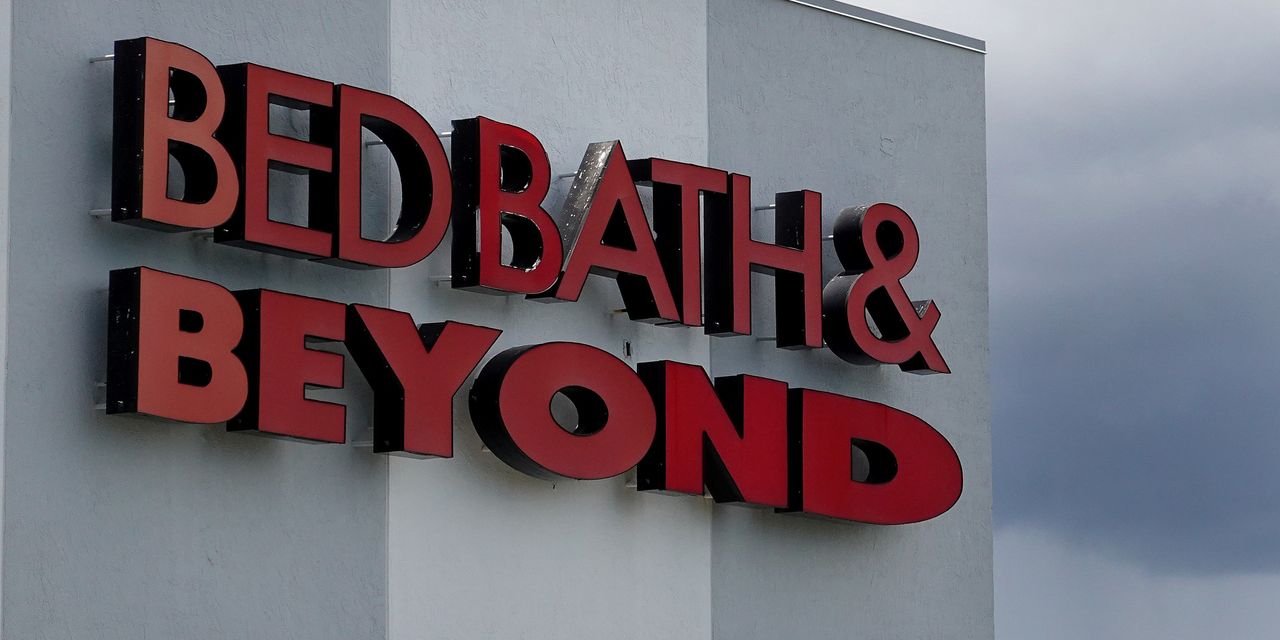The recent movement in Bed Bath & Beyond Inc.’s stock has shone a spotlight on the attraction that bankrupt companies hold for some investors.
Bed Bath & Beyond’s shares
BBBYQ,
have risen 30.7% in the last month, outpacing the S&P 500’s
SPX,
gain of 2.9%, despite the bankrupt home-goods retailer’s well-documented woes.
Howard Ehrenberg, a bankruptcy and reorganization practice partner at law firm Greenspoon Marder, said that, while he can’t discuss Bed Bath & Beyond specifically, bankrupt companies’ stocks are fraught with problems for investors.
“Overall, anyone who buys and holds the stock of a bankrupt entity is almost assuredly going to lose their money,” he said, noting that a company will either go into liquidation or reorganize, with the stock often being dramatically diluted.
“The history of stocks emerging from bankruptcy is not very good,” Ehrenberg added.
Related: Bed Bath & Beyond: From home-goods behemoth to bankruptcy
Shares of Hertz Global Holdings Inc.
HTZ,
which filed for bankruptcy protection in 2020 and exited bankruptcy the following year, trade around $19, well below an all-time closing high of $109.48 on Aug. 19, 2014.
Bed Bath & Beyond filed for Chapter 11 bankruptcy protection in April and was subsequently delisted from the Nasdaq exchange. Trading over the counter since May 4, with liquidation sales under way at hundreds of stores, the stock nonetheless continues to attract attention. Since the bankruptcy filing, investors have spent almost $200 million trading “theoretically worthless” shares, the Financial Times reported.
There has, meanwhile, been plenty of chatter about Bed Bath & Beyond on social media.
Some users on Twitter and Reddit have cited the retailer in conjunction with “Teddy,” an apparent reference to Teddy Holdings LLC, which last year filed a series of trademark applications with the U.S. Patent and Trademark Office. While Teddy Holdings is apparently linked to activist investor Ryan Cohen, at this stage, there is no indication that the holding company will play a part in Bed Bath & Beyond’s bankruptcy process.
Ehrenberg sees parallels between the purchase of shares in bankrupt companies and the meme-stock phenomenon of recent years. “They are clearly retail investors, largely on the Robinhood
HOOD,
platform, that are readers of Reddit,” he said. “They are people buying on rumor and hoping that by participating in a mass purchase binge, they will make money.”
Related: Bed Bath & Beyond investors have spent $200 million trading ‘worthless’ shares — will this holding company help them?
“To me, it’s more like gambling than it is about true financial analysis of the company’s stock that you want to buy,” Ehrenberg added.
This type of investor behavior has also caught the attention of academics.
In a recent paper, James Clunie, a director at investment consultancy Long-Short Consulting and an honorary professor at the University of Edinburgh, and Patrick Schotanus, a visiting professor of cognitive economics at Edinburgh Business School, describe how narratives can influence trading. “It is well understood that narratives can stimulate trading, which influences prices and can change business reality, and back again in a recursive pattern,” they wrote.
“Narratives in markets are not merely confined to investors seeking conviction,” the academics note, pointing to the role that that social media can play, as has also been noted by other researchers.
The paper has been submitted and is under review by the journal Collective Intelligence, Schotanus said.
Clunie told MarketWatch that recent action in Bed Bath & Beyond’s stock could also be related to predatory trading against short sellers. “By boosting the short-term share price, a group of traders can impose unrealized losses on short sellers, who may be unable to hold on to those positions” because of a “lack of resources to meet variation margin, or internal risk-management constraints such as stop losses,” he said. “The short seller must then cover his [or] her position by buying at the new, higher price.”
Related: Bankrupt Bed Bath & Beyond’s stock rises premarket, continuing rally
Clunie, the author of a 2010 book titled “Predatory Trading and Crowded Exits: New Thinking on Market Volatility,” added that short sellers then lose, and traders who bought earlier and sell to the covering short seller gain.
“It’s risky, but can be profitable to canny traders,” he said.
Read the full article here





